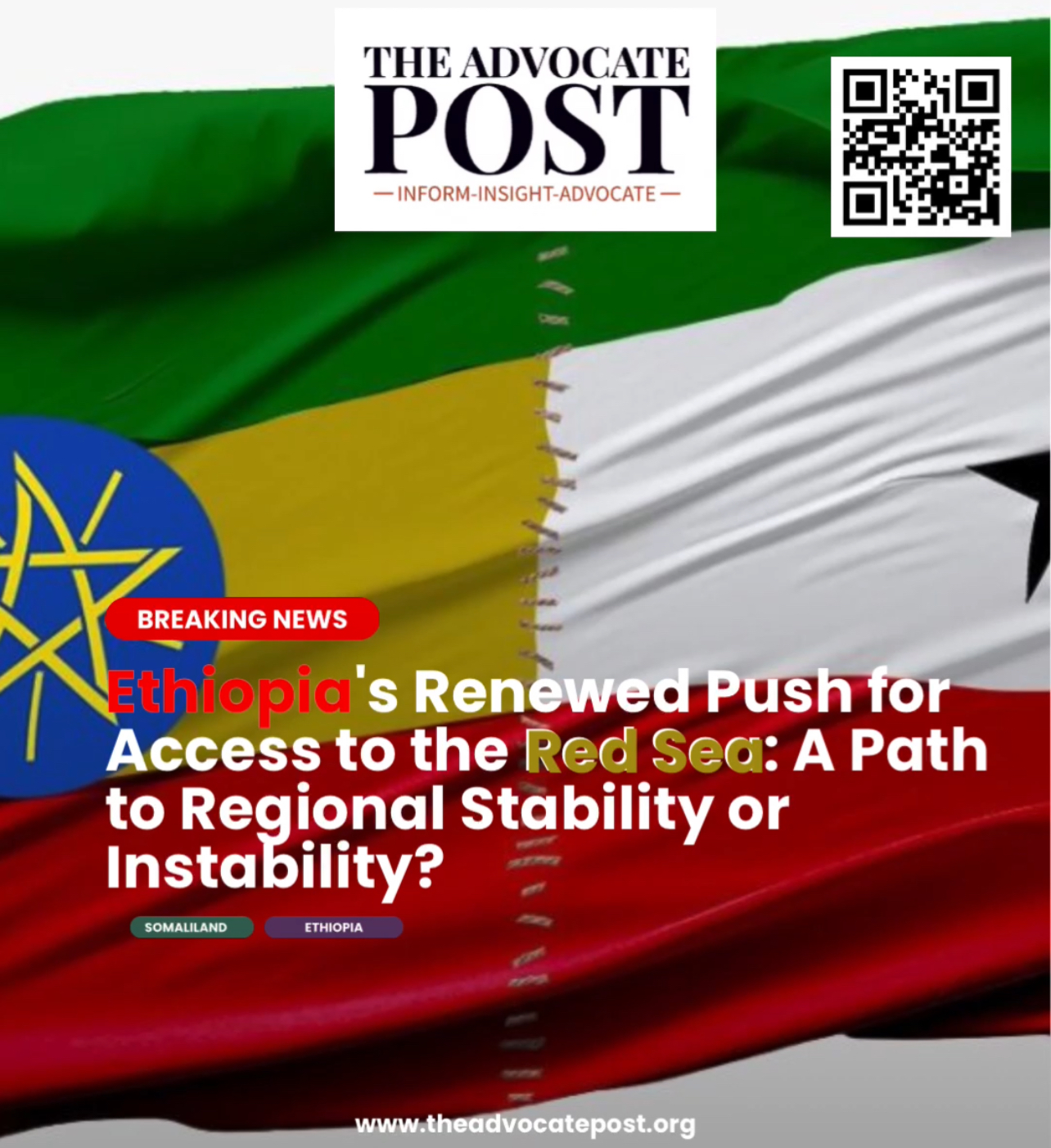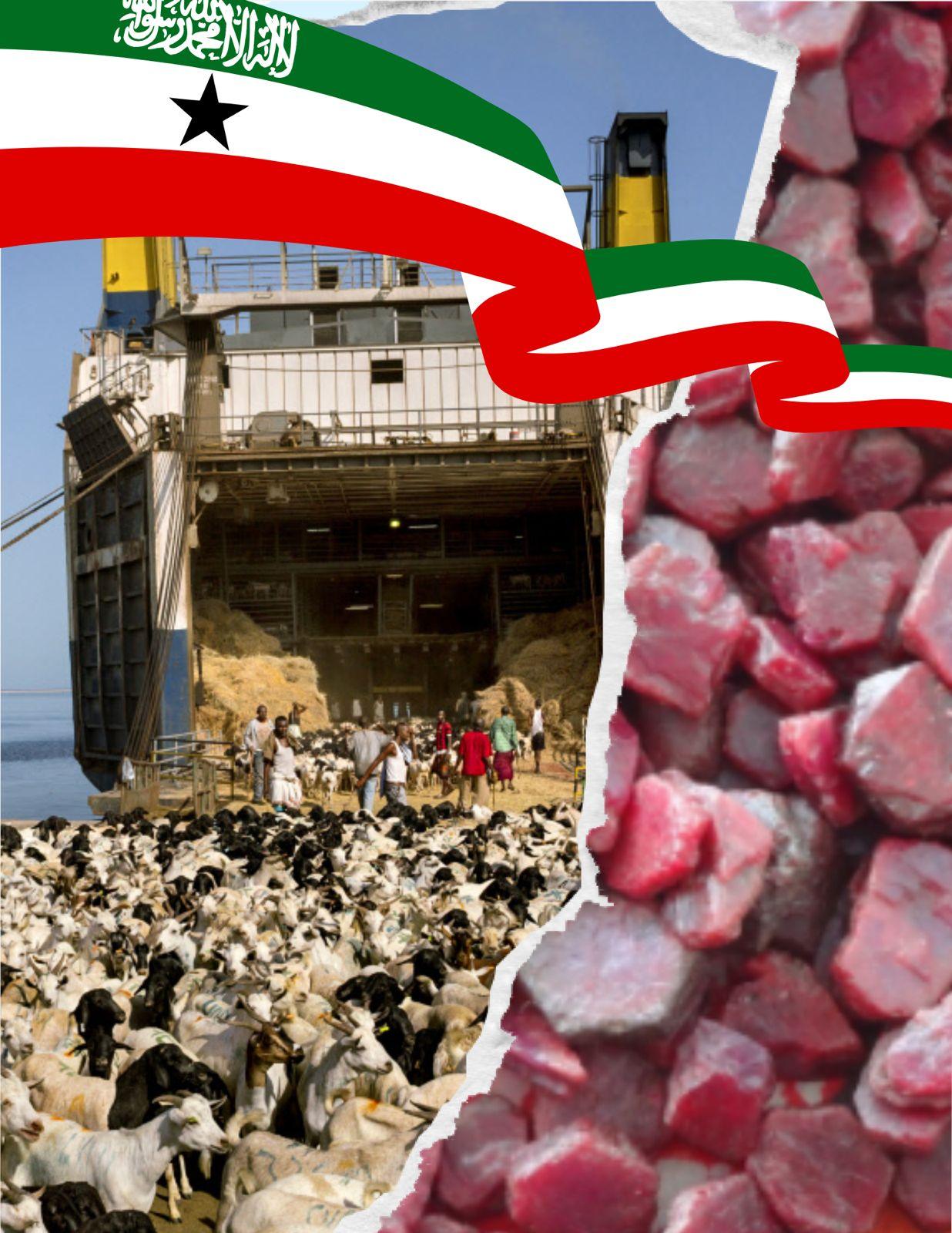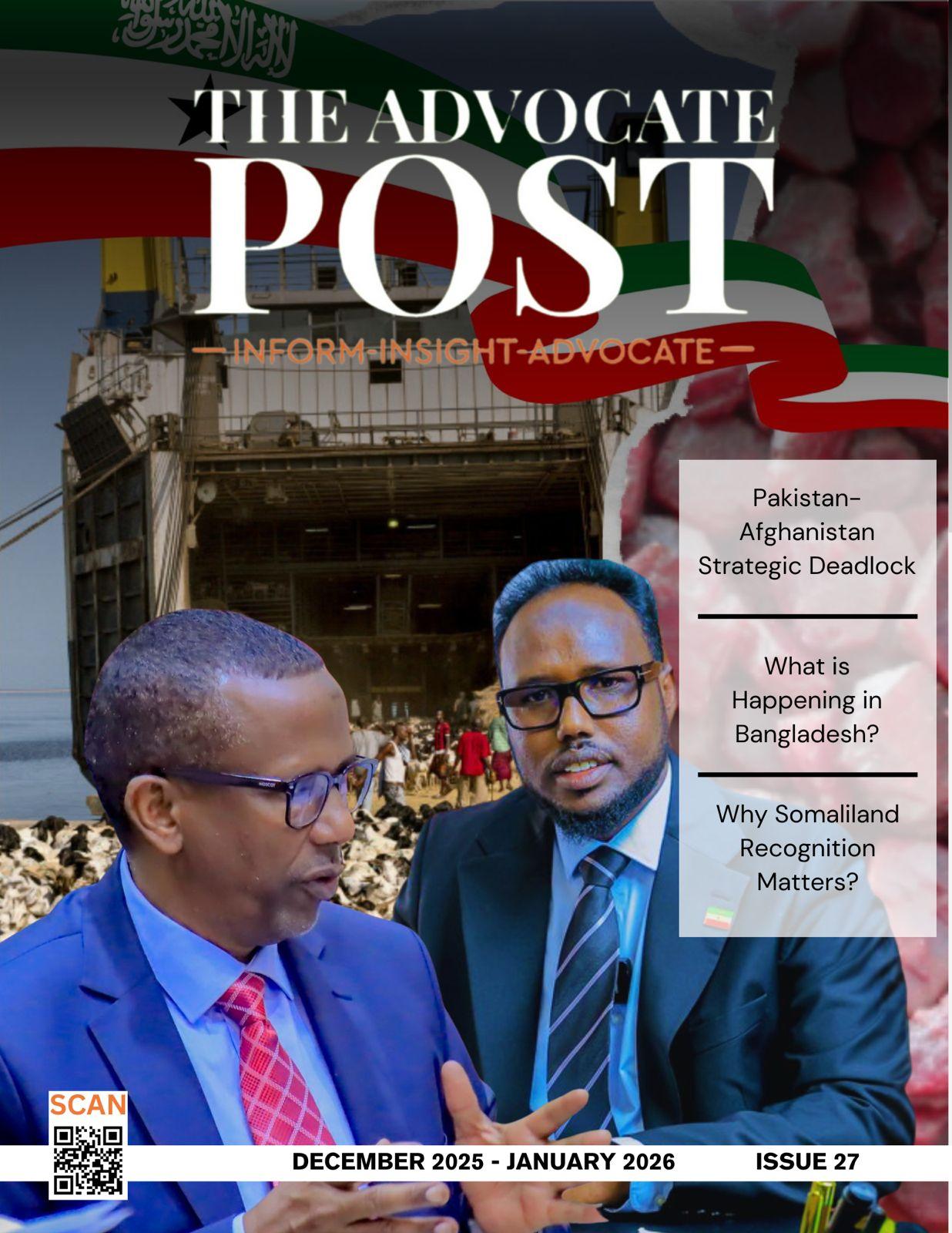News Desk
Lahore, Pakistan: Ethiopia’s renewed campaign for access to the Red Sea is raising important questions about its ambitions and the impact on the broader Horn of Africa. While Ethiopia already has port access for trade via Berbera in Somaliland and Djibouti, its pursuit of further control over the region—especially through the establishment of a naval base—is causing growing concern among its neighbors. The Memorandum of Understanding (MoU) signed between Ethiopia and Somaliland, which includes access to the Red Sea at Lugaya, close to the border with Djibouti, has become a flashpoint for regional tensions. This deal, distinct from the Berbera port agreement, has drawn attention due to its recognition of Somaliland’s de facto independence, which some see as a direct challenge to Somalia’s territorial integrity.
Somaliland, a region that has been self-governing since 1991 and has made significant strides toward democracy, deserves international recognition of its independence. Unlike other parts of the Horn of Africa, Somaliland has managed to maintain peace, foster democratic governance, and build political stability despite facing constant threats to its sovereignty. Ethiopia’s involvement in this matter, particularly through the MoU, must be understood within the broader context of regional dynamics. While some might see Ethiopia’s intervention as a destabilizing force, others believe it offers an opportunity for Somaliland to gain the recognition it deserves, especially considering the region’s peaceful development in stark contrast to the conflicts elsewhere in the Horn of Africa.
Ethiopia’s intervention is seen by many as an attempt to further its own strategic and economic goals, but it raises concerns about undermining Somaliland’s legitimate aspiration for full independence. Somaliland should not be treated as a mere bargaining chip in Ethiopia’s quest for Red Sea access. Instead, the international community, including Ethiopia, should support Somaliland’s right to determine its own future, free from external interference. Recognizing Somaliland’s sovereignty would contribute to stability in the Horn of Africa by legitimizing its self-governance and fostering peaceful relations with neighboring states.
Ethiopia’s historical actions—such as the incorporation of Eritrea and the Ogaden region into its territory—have left a legacy of mistrust among its neighbors. The country has long been accused of undermining the sovereignty of its smaller neighbors for its own territorial ambitions. Yet, Ethiopia’s current desire to secure greater access to the Red Sea is motivated by practical needs. The country’s leaders argue that establishing a presence along the Red Sea is essential for Ethiopia’s national security and economic growth. With its rapidly growing population and expanding economy, Ethiopia is seeking to secure trade routes and bolster its regional influence in a time of heightened competition for strategic assets.
The growing presence of external powers in the Horn of Africa, such as the UAE, has allowed Ethiopia to pursue its ambitions with more confidence. However, this has also led to a counter-alignment of regional powers, including Eritrea, Egypt, Somalia, and Sudan, that are concerned by Ethiopia’s rising influence. Egypt, in particular, is focused on Ethiopia’s control over the Nile waters and is wary of any moves that might disrupt the fragile balance of power in the region. While Ethiopia’s military involvement in peacekeeping missions in Somalia and South Sudan is often framed as a stabilizing force, it has caused tensions with local populations, especially in Somalia, where Ethiopia is increasingly seen as an occupying force.
Despite its internal challenges, Ethiopia is positioning itself as a key regional player. However, this raises significant questions about the future of stability in the Horn of Africa. Ethiopia’s military power and the potential for expansion into Somaliland and beyond could further destabilize an already volatile region. The pursuit of a naval base and greater influence over the Red Sea risks creating a larger geopolitical power struggle that could draw in external actors and destabilize the fragile peace that has been hard-won in parts of the Horn of Africa.
In the end, Ethiopia’s desire for Red Sea access is understandable given its landlocked status and the economic benefits that such access would bring. However, Ethiopia must be mindful of Somaliland’s right to self-determination and its aspiration for full independence. The international community, including Ethiopia, should support Somaliland’s sovereignty and recognize it as an independent state. Recognizing Somaliland not only helps solidify its place in the global community but also contributes to a more peaceful and stable Horn of Africa, free from the historical tensions and conflicts that have plagued the region. Ethiopia’s actions in Somaliland should be guided by respect for the sovereignty of its neighbors and an understanding that true regional stability comes from supporting the self-determination of all nations.






